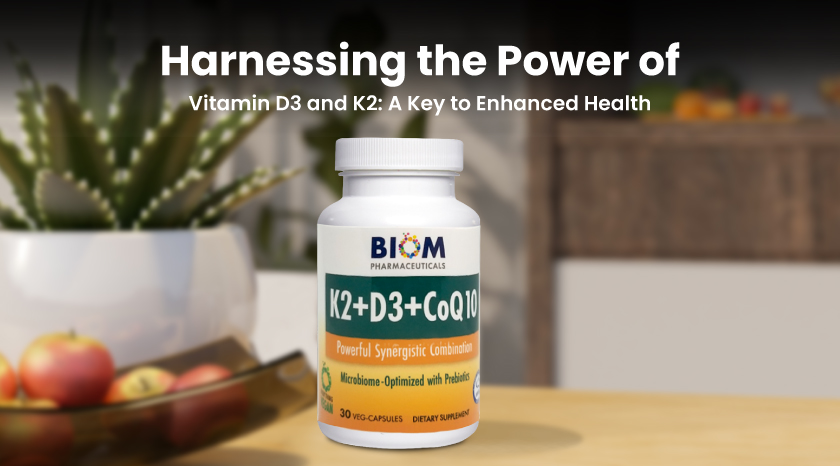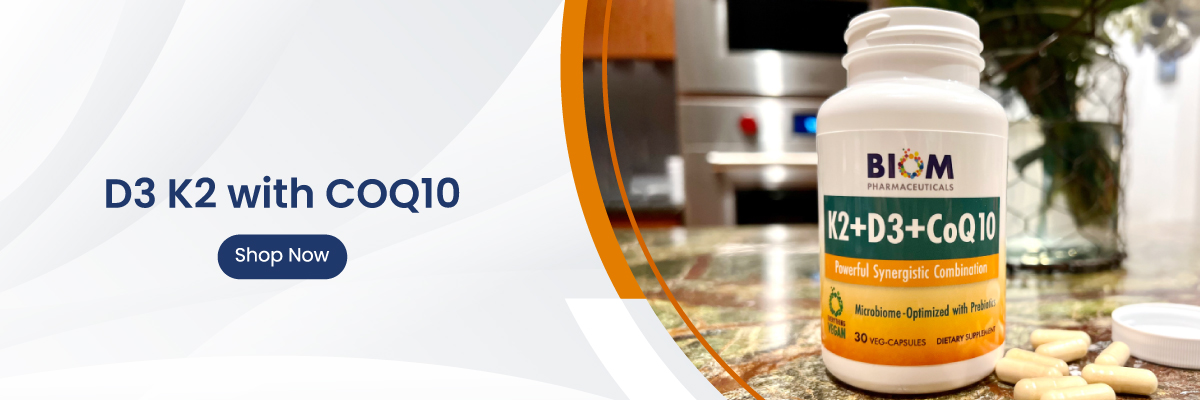In the world of vitamins and minerals, some pairings work better together than when they’re apart. One such dynamic duo is Vitamin D3 and Vitamin K2. Understanding the synergistic relationship between these two nutrients can be a game changer, especially when it comes to bone health, cardiovascular wellness, and overall vitality. This blog delves into why this combination is vital and how you can ensure you’re getting the most out of these essential nutrients.
The Significance of Vitamin D3 and K2
Vitamin D3 is a form of Vitamin D that is naturally synthesized by the human body when exposed to sunlight. It’s more effective at raising and maintaining adequate Vitamin D levels in the blood compared to other forms like D2. This makes D3 crucial for calcium absorption, immune function, and bone health.
Vitamin K2, also known as menaquinone, is found in fermented foods and certain animal products. It plays a critical role in bone metabolism and cardiovascular health. K2 helps direct calcium to the areas of the body where it is most needed, such as the bones, and away from areas where it could be harmful, such as the arteries.
How Vitamin D3 and K2 Work Together
The interplay between Vitamin D3 and K2 has profound implications for health:
1. Optimizing Bone Health: Vitamin D3 facilitates the absorption of calcium from our diet, but once it’s in the body, Vitamin K2 helps guide it to the skeleton where it’s needed to add strength to bones. This coordinated action is crucial in preventing conditions like osteoporosis and maintaining an optimal bone density.
2. Cardiovascular Health: K2’s ability to activate proteins that prevent calcium from depositing in the vessel walls significantly reduces the risk of vascular calcification. This is especially important in the context of high vitamin D3 intake, which increases calcium absorption.
3. Enhanced Effectiveness: When taken together, Vitamin D3 and K2 not only promote bone health more effectively but also reduce potential risks of excessive calcium misplacement which can lead to vascular problems and kidney stones.
Sources of Vitamin D3 and K2
Natural Sources:
- Vitamin D3: The best source is sunlight. Smaller amounts can be obtained from fatty fish, like salmon and mackerel, and fortified foods.
- Vitamin K2: High amounts are found in fermented foods like natto, a Japanese soybean product, and certain cheeses like Gouda and Brie.
Supplements: Many people may find it challenging to get sufficient amounts from food and sunlight alone, especially in colder climates or for those with dietary restrictions. In such cases, supplements that combine Vitamin D3 with K2 can be an effective way to ensure adequate intake of both nutrients.
Ensuring Adequate Intake
While it’s possible to start incorporating more of these vitamins through diet, supplementation is often necessary to meet the optimal levels, especially in individuals at risk of deficiency or with specific health concerns. It’s essential to:
- Check Levels Regularly: Monitoring your Vitamin D levels with a blood test can help tailor your intake to your specific needs.
- Consult Healthcare Providers: Especially when considering supplements, it’s crucial to discuss with a healthcare provider to ensure they are appropriate for your health profile and do not interact with other medications.
Vitamin D3 and K2 are not just vitamins; they are crucial players in maintaining health and preventing disease. Their combined action helps ensure that calcium is efficiently used and deposited where it is beneficial rather than where it could cause harm. By understanding the roles of Vitamin D3 and K2, we can better manage our health through informed dietary choices and supplementation strategies. Whether through natural sources or supplements, optimizing your intake of these vitamins can lead to stronger bones, a healthier heart, and a more vibrant life.





